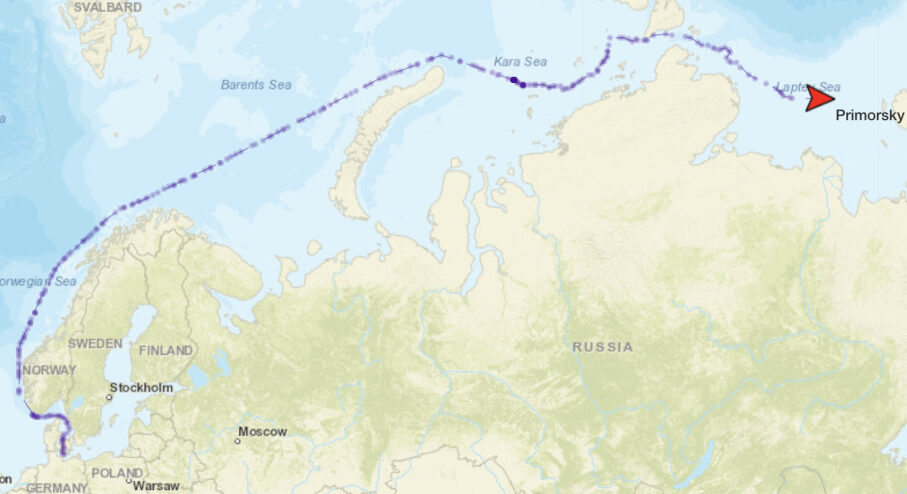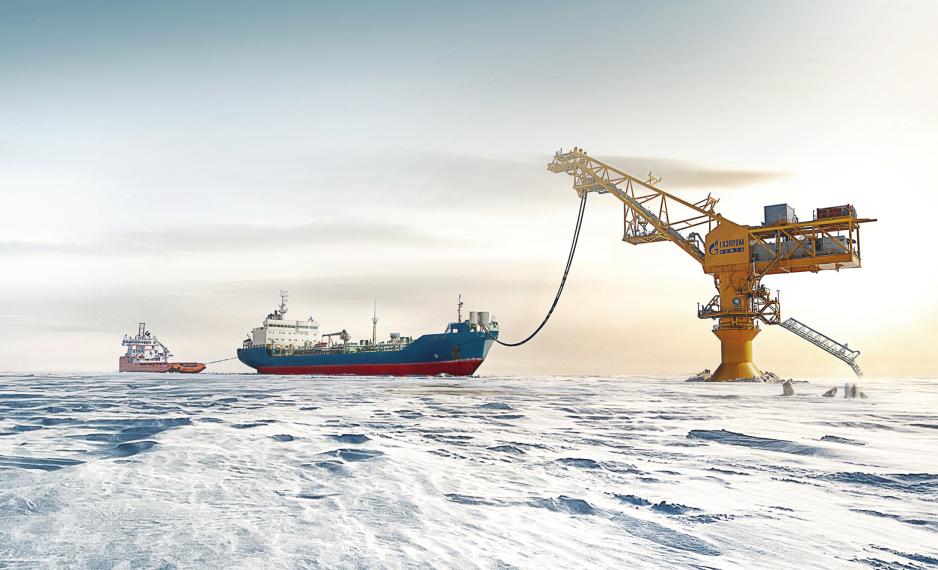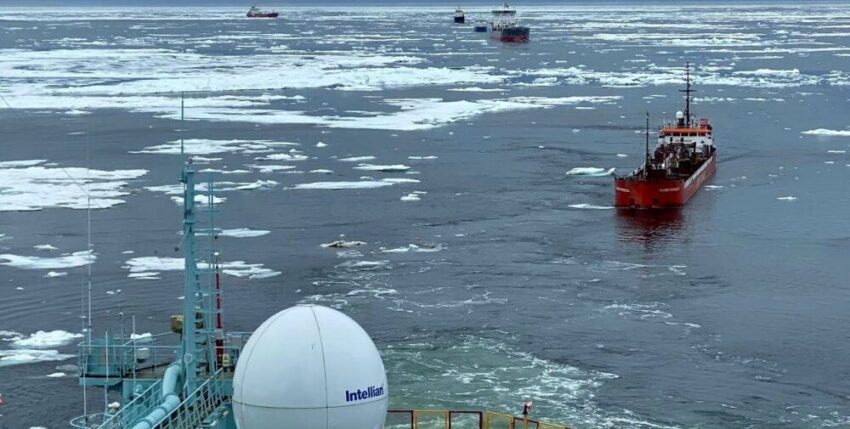Russia once again shipped crude oil across the Arctic Ocean last year. This included the crude oil tanker "Primorsky Prospect" (approx. 113,900 tonnes, 250 metres long), which belongs to the Russian state tanker company Sovcomflot (SCF). It is one of the few tracked cargoes on this route from the Russian Ust-Luga in the Baltic Sea, along the Norwegian coast with destination Rizhao in China.

However, shipping to the east had to be discontinued for this winter on 30 November 2023.
Using the so-called Northern Sea Route (NSR) through the Arctic waters could reduce transit times by up to two weeks or around 30 % compared to the southern route through the Mediterranean and the Suez Canal. Rosatom, which operates the NSR, and the company Novatek, which operates LNG projects on the Russian Arctic coast, are planning to start year-round shipping traffic via the Northeast Passage in 2024.

However, this intensive use raises environmental concerns, even if the shortcut means more favourable delivery costs for exporters and customers. This is because the sanctions imposed by the European Union have prompted Russia to open up new markets for its crude oil, particularly in China and India.
However, there has also long been opposition to the use of the Arctic Ocean for commercial shipping. The United Nations Intergovernmental Panel on Climate Change has stated that such use could have negative consequences for the region, including higher emissions and threats to marine ecosystems in the event of tanker accidents.
With the current Russian and Chinese blockade against almost any form of marine protection, the current United Nations procedures will not succeed in better protecting the Arctic. But why should the Arctic fare any better than the Antarctic?
Source: gCaptain










